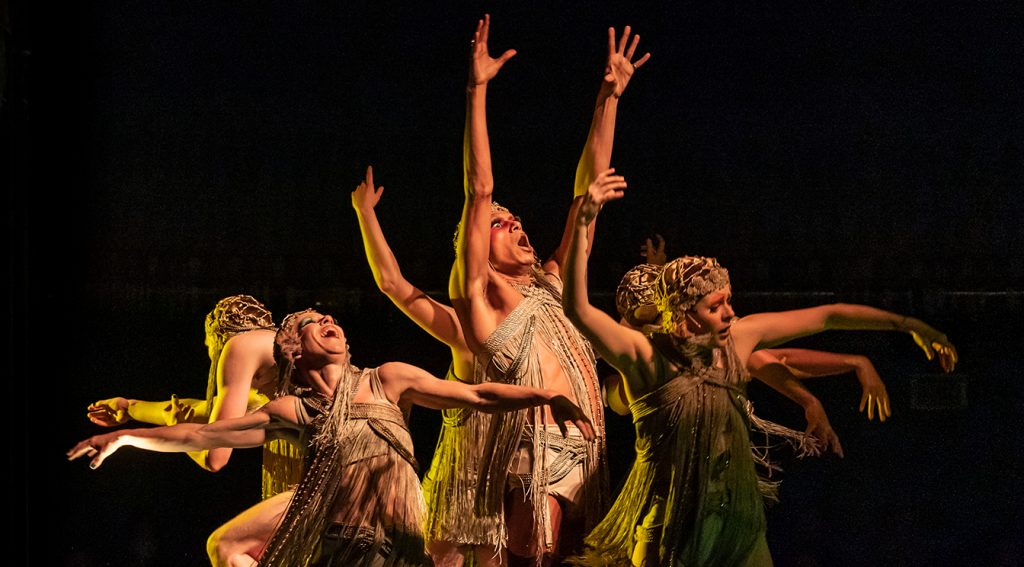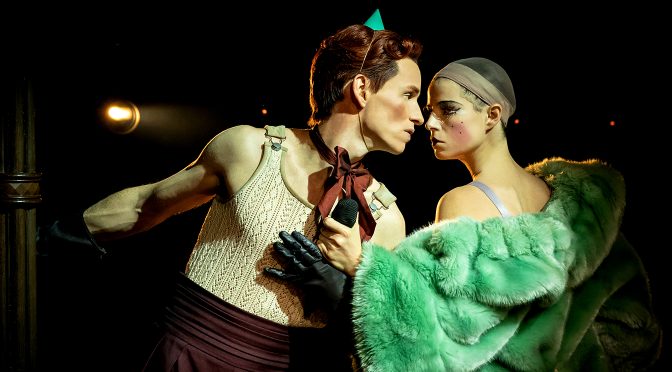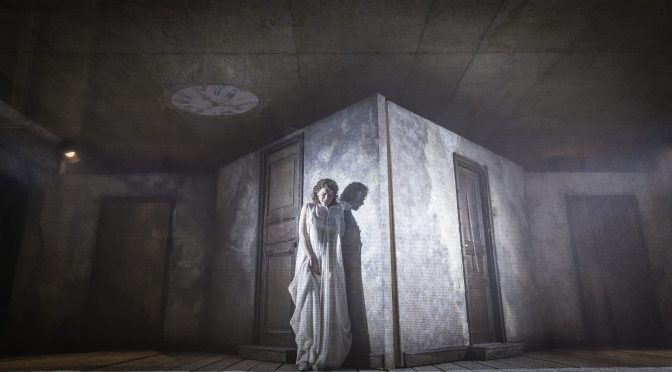Star billing and the refurbishment of the Playhouse Theatre for the production make this revival of John Kander and Fred Ebb’s musical a very expensive hot ticket.
The price of theatre is an issue as complicated as it is frequently discussed. To be fair, few industries care as much about access as the theatre. As sales show, people are willing to pay. And you can get comfortable £30 seats here… if you are lucky. But with cabaret table places (plus a dining option) costing £325, it’s hard not to question if any show could be worth that price.
And the changes to the theatre are pretty underwhelming. If you like the immersive thing, then entering by the stage door into a bar isn’t going to cut it. The table seating, while nice for some, is hardly new. Thankfully, beyond the hype is a strong production of a great musical. That you could see several shows just as good for same money isn’t the fault of the creative team.
Director Rebecca Frecknall handles staging in the round well and keeps the action moving with an impressive attention to detail. The older couple in the story are given their due. Played exceptionally well by Liza Sadovy and Elliot Levey, the doomed affair between Fraulein Schneider and Herr Schultz becomes the emotional heart of the show. But I’m guessing their performances might not be what you’re interested in?
Cabaret is about two – maybe three – iconic roles. Stepping into big shoes are Eddie Redmayne as the Emcee, Jessie Buckley as Sally Bowles and Omari Douglas as wannabe writer Clifford. If you’ve paid the money, you do get to the see them up close and personal. All three are good, very good. Redmayne’s Emcee is a conductor and a conjuror of events, always in control. Buckley’s impassioned performance is as brave as Douglas’s is cleverly restrained. Both Redmayne and Buckley are a little too keen to differentiate themselves from previous portrayals of their characters – some lines are delivered with odd inflections as a result. But both sound great and have true star quality.

For surprises, though, it is Tom Scutt’s design that grabs attention (it aids Redmayne enormously) with a gothic feel that’s both effective and original. Meanwhile, Julia Cheng’s choreography is the real star. Movement is aggressive throughout, the performers frequently reduced to frightening and dramatic marionettes.
Credit to Frecknall – Cabaret isn’t fun for your money and there’s no concession to pleasing the well-paying crowd. Remember, Joe Masteroff’s book for the stage is even darker than the famous film, with a keen eye on poverty as well as Nazism. Buckley does particularly well in showing Bowles’ desperation. Frecknall looks at the exploitation behind the fun from the start. But, for at least part of the show, should some of the characters be less aware of how grim things are? When Clifford says that the party is over, it’s jarring that, in this production, the fun never actually begins.
Until 1 October 2022
Photos by Marc Brenner




